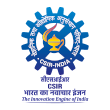Signing of Memorandum of Understanding (MoU) between the Indira Gandhi National Centre for the Arts (IGNCA), New Delhi and the CSIR-Traditional Knowledge Digital Library (CSIR-TKDL) Unit
The MoU aims at cooperation related to digitization and inclusion of information on traditional knowledge of India from manuscripts and traditional cultural expressions
The Indira Gandhi National Centre for the Arts (IGNCA) and the CSIR-Traditional Knowledge Digital Library (CSIR-TKDL) Unit signed a Memorandum of Understanding (MoU) in New Delhi today for cooperation related to digitization and inclusion of information on traditional knowledge of India from manuscripts and traditional cultural expressions.
The MoU was signed by Prof. Sachchidanand Joshi, Member Secretary, IGNCA and Dr. Viswajanani J Sattigeri, Scientist H and Head, CSIR-TKDL Unit in the presence of several senior officials from both organizations.

India is home to over two crore manuscripts containing valuable information on Indian heritage and traditional knowledge (TK). Our traditional cultural expressions (TCE) are still passed on from one generation to the next through word of mouth.
With fewer and fewer people understanding scripts and languages of these manuscripts and our cultural expressions, the MoU between IGNCA and CSIR-TKDL Unit will facilitate efforts towards protection and preservation of the manuscript knowledge for current and future times, through inclusion of the information into the TKDL database. This cooperation between the Parties is also expected to enable digitization and inclusion of non-written, oral and audio-visual materials related to traditional knowledge and traditional cultural expressions into the TKDL.
Speaking on the occasion, Prof. Sachchidanand Joshi spoke of the importance of manuscripts and documentation of local practices in the context of preserving this valuable information for our future generations. He also spoke of the efforts of the IGNCA on the above, including the existence of priceless manuscripts in all subject areas, and manuscripts in languages and older scripts such as in Sanskrit, Arabic and Persian. Speaking of local traditions and practices, Prof. Joshi highlighted the IGNCA initiative on “mera gaon meri dharohar” in reference to mapping of information at village levels related to modern and traditional practices. He stated that the cooperation between the two organizations is a much-required initiative towards addressing national needs on preserving and disseminating information on our invaluable heritage.

Dr. Sattigeri highlighting the deliberations over the years between the organizations on various aspects related to TK and TKDL, stated that the signing of the cooperation is a forward-looking action towards enriching and enhancing the scope and value of the TKDL. Stating that the TKDL offers a unique platform to bring together traditional knowledge and technology that can be understood by the current generations, she opined that the cooperation with IGNCA offers immense potential for both Parties to work across diverse aspects of TK and TCEs.
Besides focused activities related to manuscripts and local practices, both organizations have also agreed to collaborate and undertake outreach and dissemination activities such as publications, seminars, conferences, workshops and exhibitions jointly, and also pursue research studies in areas of common interest.
About CSIR-TKDL: The Traditional Knowledge Digital Library (TKDL) is a pioneering Indian initiative, jointly by the CSIR and Min of AYUSH, to prevent exploitation and to protect Indian traditional knowledge from misappropriation by way of wrongful Intellectual Property Rights. India’s rich traditional knowledge which exists in diverse languages such as Sanskrit, Hindi, Arabic, Persian, Urdu, Tamil etc. is neither accessible nor comprehensible for patent examiners at the international patent offices. The TKDL contains Indian traditional medicine knowledge from classical/ traditional texts related to Ayurveda, Unani, Siddha and Sowa Rigpa, and Yoga techniques in a digitized format and is available in five international languages (English, French, German, Spanish and Japanese) to patent examiners. The TKDL is accessed by 15 patent offices worldwide for search and examination of evidences related to TK in patent applications filed at their offices. Recently, the Cabinet, GoI approved widening of the access of the TKDL to users, beyond patent offices to stimulate R&D and innovation based on Indian TK.
About IGNCA: Indira Gandhi National Centre for the Arts (IGNCA) is an autonomous institution under the Union Ministry of Culture, Government of India. The organization serves as a major resource centre for the arts, especially written, oral and visual source materials. It also undertakes research and publication programmes of reference works, glossaries, dictionaries and encyclopaedia concerning the arts and the humanities.

 Pensioners Corner
Pensioners Corner Screen Reader Access
Screen Reader Access Skip to main content
Skip to main content

























